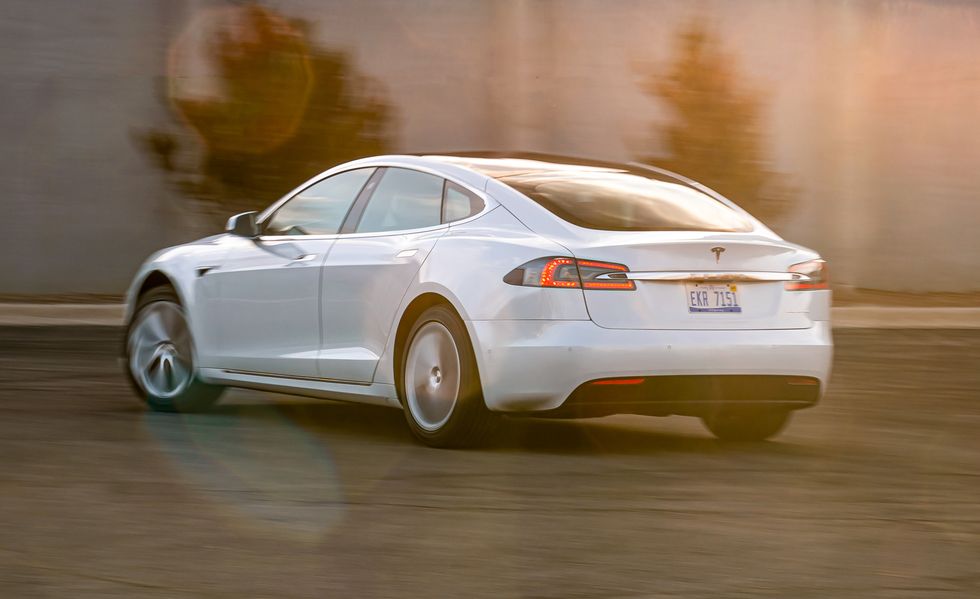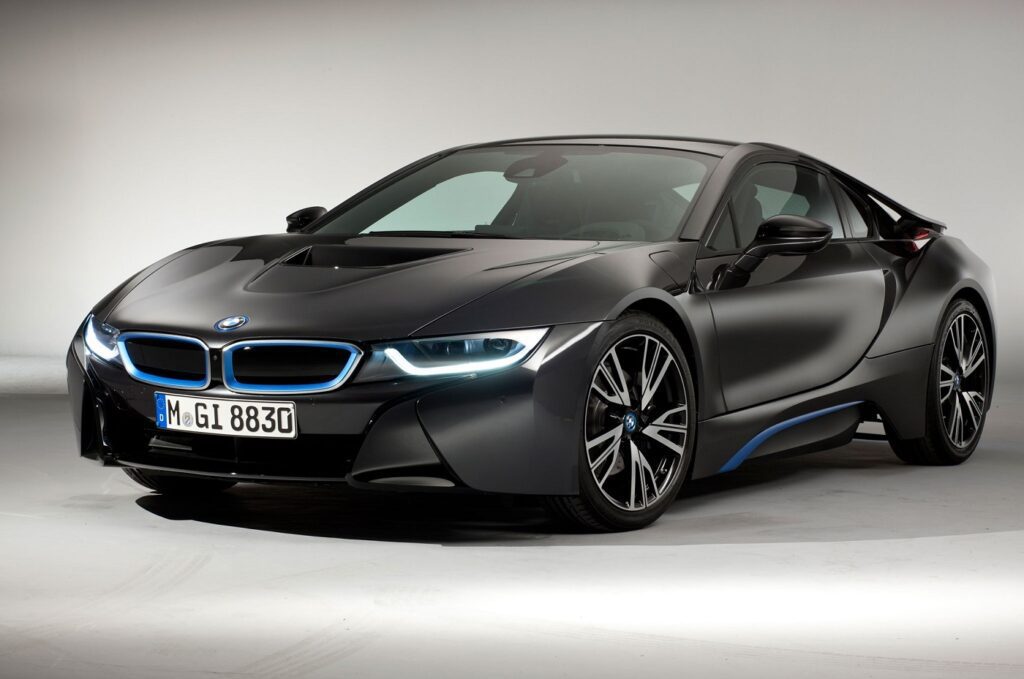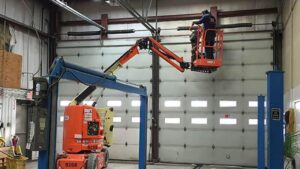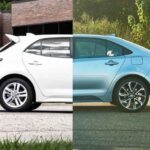Electric vehicles (EVs) have attracted the attention of environmentally aware customers and those looking for sustainable transportation alternatives in recent years. Amid this expanding trend, two automotive behemoths, Tesla and BMW, have emerged as major players in the EV industry. This alliance has the potential to revolutionize electric mobility through their combined efforts.
This cooperation brings together the inventive energies of Tesla and BMW, leveraging the capabilities of two industry giants. Their common objective is to make electric cars a popular consumer choice, ultimately altering how we travel around the world.
The progress of battery technology, a critical component in the EV equation, is central to our partnership. Tesla’s significant advancements in battery research, as seen by the Model S and Model 3, are in sync with BMW’s manufacturing capabilities. Together, they have the potential to produce game-changing advances in battery efficiency, range, and charging capabilities.

Tesla BMW Relationship
This relationship, however, goes beyond batteries. The partners are focusing on establishing a strong charging infrastructure to address another significant hurdle in EV adoption. Tesla’s industry-leading Supercharger network has set industry standards by providing quick and easy charging choices. This collaboration hopes to transform that success into a complete charging network available to all EV users, independent of car manufacturers.
Another pillar of partnership is autonomous driving. Tesla and BMW have both made significant advances in self-driving technology. This collaboration aims to produce safer, more economical autonomous cars by pooling their skills. Their united commitment to a flawless and secure independent driving experience has the potential to dramatically accelerate EV adoption.
The importance of the Tesla-BMW relationship extends well beyond the automobile industry. It represents a paradigm change in the industry, emphasizing the value of cooperation and shared information in driving innovation. This collaboration moves us toward a future marked by sustainable mobility options, making the world cleaner and more environmentally conscious.
How Tesla and BMW Shape the Electric Vehicle Future?
The automobile world is buzzing as reports of a possible partnership between two industry heavyweights, Tesla Motors and BMW, gather traction. Although formal confirmation has yet to materialize, the mere prospect of a Tesla-BMW collaboration has piqued the interest and spurred debate among car aficionados worldwide.
Amid the conjecture, it’s critical to examine these rumors with caution. While the possibility of a Tesla-BMW partnership looms, it’s important to realize that these conversations are speculative. However, this hasn’t stopped the car industry from investigating the potential that such a collaboration may provide.

Consider a car that combines Tesla’s groundbreaking all-electric technology with BMW’s dedication to pioneering solid-state batteries and unrivaled workmanship. Consider a combination of elegant aesthetics, cutting-edge propulsion, and luxury. While the exact specifics of the rumored model are unknown, this possible fusion can set new norms and alter market expectations.
Beyond superficial attraction, Tesla and BMW collaborations are far-reaching. Both firms have a history of pushing the envelope, although in different ways. Tesla’s mission to electrify the car industry parallels BMW’s pursuit of solid-state battery technology in a fascinating way. The confluence of these goals has the potential to spawn game-changing innovations, transforming not only the electric car scene but also affecting larger discussions about sustainable mobility.
As we wait for official announcements, it’s evident that the mere mention of a Tesla x BMW partnership has sparked a lively debate about the future of driving. Whether or whether this collaboration results in a concrete vehicle, its excitement has sparked a spirit of inquiry and invention throughout the automobile world. This possible partnership serves as a reminder that the road ahead is littered with automobiles as well as undiscovered zones of technology growth and opportunity.
Tesla-Inspired Batteries And BMW Charging Stations

Tesla has been a pioneer in the electric car business for more than a decade. Tesla’s clout has spread across many market groups, from the flashy Roadster to the utilitarian Model S and the impending Model X. Their greatest objective, however, is to change the transportation scene. Tesla is considering collaborations with other automakers to achieve this aim, with BMW presumably in the lead. With the BMW i3 and i8 currently on the market, a partnership between the two firms might be the key to a big revolution.
While electric vehicles have gained popularity, battery availability remains a common challenge for all manufacturers. The BMW i3 and related vehicles can travel more than 80 miles on a single charge, which is an outstanding effort but falls short of the Tesla Model S 85D’s incredible 295-mile range. According to reports, Tesla and BMW are considering a possible partnership on BMW batteries. This might significantly increase the driving range of BMW’s electric vehicles.
This disclosure comes on the heels of Tesla’s recent declaration that it is prepared to share its high-speed battery service station network with other manufacturers. Given Tesla’s countrywide investment in 97 charging stations, this action is historic in the field of electric mobility. Tesla’s network enables its vehicle owners to traverse the nation without concerns about power availability.
According to the Austin BMW repair professionals at German Auto Center, a partnership between Tesla and BMW is quite likely. This might signal a paradigm change in the electric vehicle sector. BMW’s global popularity and influence may propel electric mobility into the mainstream, a common goal that might be realized through this collaboration.
Why Would a Partnership Benefit Tesla?
Tesla, an EV trailblazer, may appear to take an atypical approach in fulfilling its overarching aim of driving the electric vehicle industry ahead by developing relationships with other automakers. A deeper look, however, exposes the strategic reasoning for such alliances, notably in the case of a rumored cooperation with BMW. While Tesla’s dedication to increasing the availability of electric vehicles remains a driving element, further appealing incentives might make a relationship with BMW mutually advantageous.
Tesla’s commitment to developing the electric vehicle environment goes beyond its automobiles. It has continuously maintained an open-door policy, allowing other manufacturers to exploit its patents. Previous partnerships with industry titans like Toyota and Daimler, in which Tesla supplied electric powertrains, demonstrate the company’s dedication to moving the industry ahead. This philosophy emphasizes the importance of jointly increasing EV adoption rather than concentrating on individual accomplishments.
However, the motivation for collaborating with BMW extends beyond philanthropy. Given its current annualized production pace of about 1 million EVs, Tesla’s lofty aim of producing 20 million electric vehicles annually by 2030 is no minor achievement. This massive increase in output necessitates overcoming technological and market constraints.
Why Would a Partnership Benefit BMW?
The focus on potential cooperation between Tesla and BMW highlights a strategic move that might provide enormous benefits to both automakers. While Tesla could use BMW’s skills to handle European rules and boost EV production, BMW has equally strong reasons to consider a partnership, particularly in terms of improving EV technology and increasing its market reach.

The i3 and the hybrid sports car i8 are the cornerstones of BMW’s electric vehicle portfolio. Despite their revolutionary features, these models have a limited electric range. The i3’s range is limited to roughly 80 miles on a single charge, which is less than Tesla’s Model S 85D’s outstanding 295-mile range. This discrepancy in the electric field highlights the possibilities for collaboration.
The alliance, according to rumors, will focus on creating improved batteries for BMW’s EVs. Such an endeavor might result in a long-distance version of the i3, a big step forward that corresponds to the growing demand for electric vehicles with longer travel capabilities. BMW might build a more competitive position in the burgeoning EV industry by leveraging Tesla’s battery technology knowledge.
Apart from technology, Tesla’s recent remark regarding the possibility of building high-speed battery service centers for other EV manufacturers is noteworthy. BMW could tap into existing infrastructure for all-electric driving with Tesla’s huge charging network of 97 stations across the United States, increasing its attractiveness to potential buyers.










